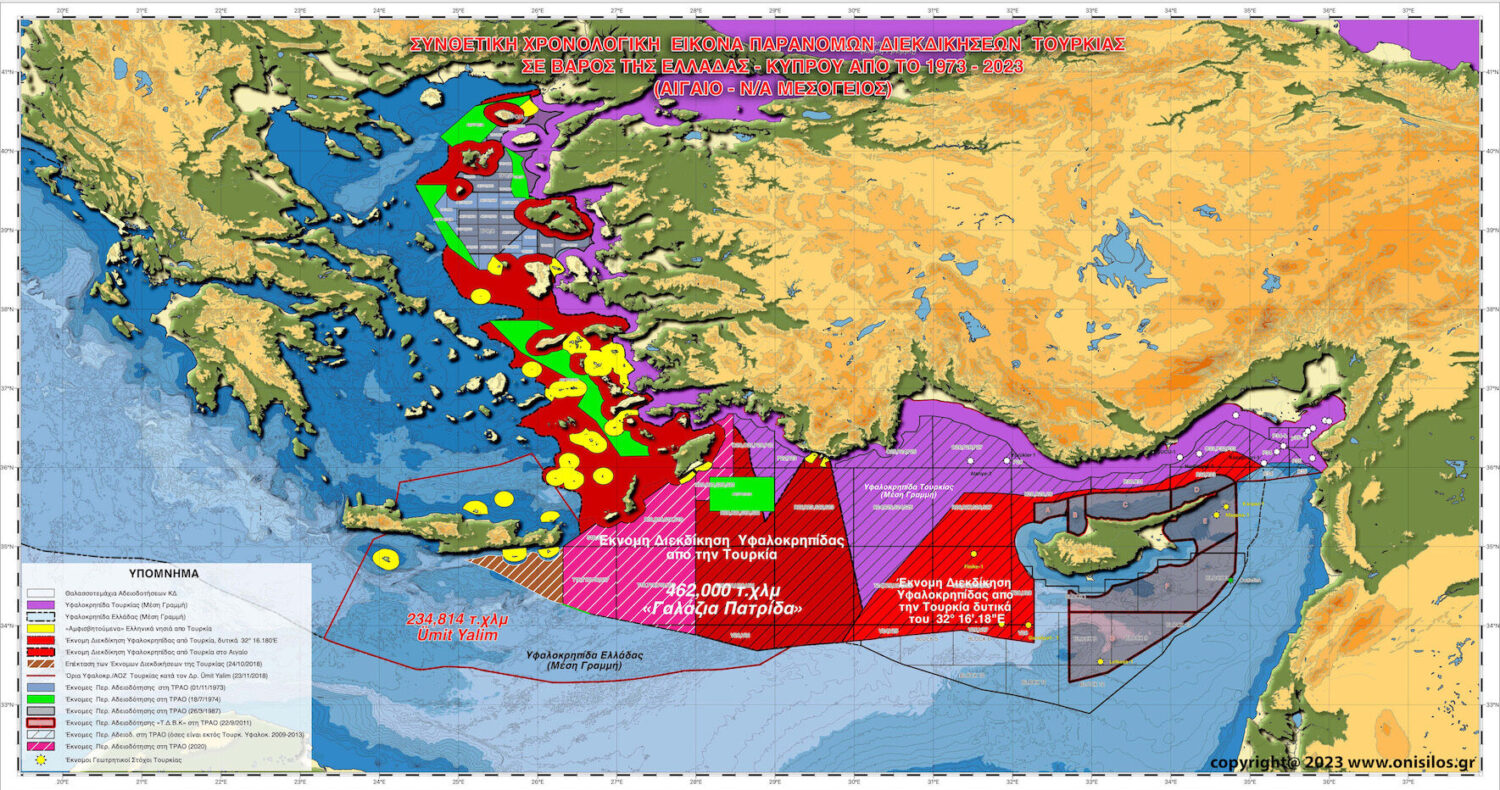17/10/2022
At the start of 1981, Turkey rose up again (as Turkey often does) using allegations against Greece, for the demilitarization of the Greek islands of the Aegean, Lemnos, Samothraki, Lesbos, Chios, Samos and Ikaria. Claiming that they had been demilitarized by the 1914 Note under the Treaty of London of 1913, and that by Article 12 of the Treaty of Lausanne in 1923, the demilitarized status of Lemnos was not changed by the Montreux Convention. The Turkish press wrote that the Turkish government would communicate with the 6 countries at the London Conference (including Britain) which, it claims, had decided to demilitarize the islands.
On May 15, 1981, the then head of the British Embassy in Ankara, diplomat R. G. Short, informed the Foreign Office and requested an opinion.
In the Foreign Office (in London) the research of all relevant documents, Conventions, Treaties, etc. since 1913 was undertaken by, the experienced official in the Research Department Mrs Angela Gillon.
Mrs. Gillon gave the result of her investigation, on June 18, 1981 in which she concluded in favour of the Greek position, identifying the distortions used by Turkey.
The noteworthy conclusion of her research was then sent to the Legal Department of the Foreign Office where it was further studied by the Assistant Legal Counsel Mr. A. I. Aust, who also gave his opinion on June 26, 1981. Mr. Aust’s opinion consists of 8 paragraphs. In paragraphs 3 and 4 he stated the following (from original document – read in the British National Archives at Kew):

And his paragraphs 6 and 7 (from original document read in the British National Archives at Kew) :

Diplomat R. G. Short , having being informed of the above opinions from London, wrote back on July 7, 1981 to Mr. A. J. F. Caie of the Southern European Section who was handling the matter. After thanking them all and Ms Angela Gillon for such helpful research and comments he added:
“I agree with you and Ms. Angela that the Turks seem to be on a weak legal ground in harking back to the 1913 Treaty of London; but let us hope that we never have to say so!”
In October 1981 the Turkish Ambassador in London on the instructions of the Turkish government conveyed to the British government their concerns about “anti-Turkish statements” by the Greek Prime Minister because the latter had declared that Greece has the right to extend its territorial waters from 6 in 12 miles. “This will make the Aegean a Greek lake affecting the security and economic interests of Turkey” said the Ambassador, and that Turkey was informing friendly governments with the view to convince Mr. A. Papandreou to come to his senses! Lord Carrington suggested it was premature even to continue bilateral discussions on the differences…
Note 1. Diplomat R. G. Short was killed on November 20, 2003 at the age of 58, along with other citizens in Constantinople (Istanbul) , by a bomb at the British Consulate where he had served as Consul General since 2001. He was fluent in the Turkish language, and most of his years in the service of the Foreign Office as a diplomat he spent in various posts in Turkey where it was his first appointment.
Note 2. Ms. A. Gillon in the 1980s/90s also gave her opinion on numerous matters concerning the Cyprus issue. One was on November 1, 1983, when asked by the Foreign Office whether the Greek Cypriots had accepted the concept of Bi-Zonality in relation to the report of the UN Secretary General on August 9, 1980, her answer was NO. And she quoted the statement of President S. Kyprianou on the same day (9.8.1980) that his side neither committed nor accepted a bizonal solution and the term “bizonal” does not exist in any “constitution” of a federation…
This article was first published in Simerini by the writer in Greek on 16 September 2022 :
source:https://www.sigmalive.com/news/greece/1021152/foreign-office-opinion-in-favour-of-greece-on-the-demilitarization-of-islands





